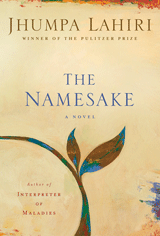TIME 지 중: 기사도 인물도 훌륭
“The truth is, nobody out-works Denis McDonough,” President Obama said as he named him chief of staff earlier this year.
There has been no immediate legislative payoff from the flurry of communication between the opposite ends of Pennsylvania Avenue. But Democrats say they think thawing the icy relationship between congressional Republicans and the tightly controlled White House can only help.
...
If you don't know his face or haven't heard his name, that too is according to plan. Unlike two of Obama's previous, high-profile chiefs of staff, Chicago Mayor Rahm Emanuel and Chicago party vet Bill Daley, McDonough has no professional identity beyond the President, whom he has served for nearly six years. He disagrees with Obama sometimes and even forced the reconsideration of a personnel matter a couple of days into the job. But he is far less likely than Emanuel to tell anyone about it. And unlike Daley, he is the last person to give an interview on the record about his thoughts on anything. (McDonough declined to talk for this story.) "He views himself as a staffer, not a principal," says Dan Pfeiffer, who works down the hall. "And that endears him to other people."
...
Back in college--at athletics-mad Saint John's University in Minnesota, with the winningest football program in NCAA Division III history--McDonough took the defensive plays off the bench and was in charge of reading the offense, earning a reputation as the smartest player on the field. "He wasn't the biggest, and he wasn't the fastest," says Jerry Haugen, his old defensive coordinator. "He knew not only his own job but everybody else's as well. It's kind of what he does now."
...
It was a small gesture, for sure, a nod to the battles yet to come. But it was also a start.
By Michael Schere
Read more: http://www.time.com/time/magazine/article/0,9171,2143015,00.html#ixzz2UEvX8SZl
TIME 지 구독은 참으로 값지다, 적극 추천
Profile
(Pete Souza/ White House)
President Obama named deputy national security adviser Denis McDonough, one of his closest confidants who served in his Senate and campaign offices, as his new chief of staff on Jan. 25, 2013. McDonough replaces Jack Lew, who was recently nominated to head the Treasury Department.
McDonough has carved out a reputation as a fiercely loyal and demanding aide who has played a key role in some of the administration’s highest profile decisions, including the U.S. military drawdowns in Iraq and Afghanistan, the response to the Japanese tsunami and the handling of the attack on the U.S. diplomatic mission in Benghazi, Libya.
Following the departure of Obama's first national security adviser, Jim Jones, in October 2010, he became deputy to the new man in charge of the National Security Council, Tom Donilon.
He was a top foreign policy adviser to former Senate Majority Leader Tom Daschle (D-S.D.) and to President Barack Obama when he was a senator. He also served as a senior fellow at the Center for American Progress, a left-leaning think tank from which a slew of Obama administration officials have hailed.
McDonough advised the president on foreign policy and helped craft his speeches as director of strategic communications for the NSC before taking over as acting chief of staff when Mark Lippert departed.
He was a key player in President Obama's decision to send an additional 30,000 troops to Afghanistan for what was dubbed a temporary surge; those troops are expected to start coming home in July 2011.
And during his tenure as deputy NSC director in May 2011, Osama bin Laden was killed in a U.S. special forces raid in Abbottabad, Pakistan.
- Career History: Acting NSC Chief of Staff (since October 2009-October 2010); Director of Strategic Communications, National Security Council (since January 2009-October 2010) Member of President Barack Obama 's transition team (Nov. 2008 to Jan. 2009); Foreign Policy adviser to Barack Obama 's 2008 Presidential campaign (2006 to 2008); Center for American Progress, Senior Fellow (2004 to 2006)
- Birthday: Dec. 2, 1969
- Hometown: Stillwater, Minn.
- Alma Mater: St. John's University (Minnesota); Georgetown University, M.S. in Foreign Service, 1996.
- Religion: Catholic
- Office: The White House, 1600 Pennsylvania Ave.
- Web site
McDonough was a staffer on the House International Relations Committee from 1996 through 1999. He then joined Daschle's (D-S.D.) foreign policy team, where he worked until 2004, advising him on terrorism, AIDS and Middle East policy.
When Daschle lost his reelection bid, McDonough followed him to the Center for American Progress, a progressive think-tank founded by former Clinton Chief of Staff John D. Podesta. There he researched health-care policy as a senior fellow and adviser to Daschle.
McDonough has argued for a common-good approach to foreign policy, saying that the U.S. must address problems like global warming and poverty by taking approaches that will benefit other countries as well. He has spoken in support of a cap-and-trade system and called on the U.S. to make a serious commitment to reducing greenhouse gases.
Killing bin Laden
Under McDonough's watch at the NSC, the world's most-wanted terrorist, al-Qaeda leader Osama bin-Laden was killed by U.S. special forces after years of painstaking intelligence work.
As a fellow at the Center for American Progress, McDonough has relationships with Obama transition co-chair and CAP head John Podesta, CAP chief operating officer Neera Tanden and several other prominent Obama backers.
As a former chief of staff for Tom Daschle, McDonough is also a part of the growing list of Daschle alumnae that worked on the 2008 Obama campaign and in the Obama White House. Obama's Senate chief of staff, Pete Rouse, is a a senior White House adviser, and Mark Lippert, also worked for Daschle before becoming NSC chief of staff in the Obama administration.
http://www.washingtonpost.com/politics/denis-mcdonough/gIQAt6rX9O_topic.html
'선생, 먼저 살다' 카테고리의 다른 글
| John Wooden: The difference between winning and succeeding (0) | 2014.06.28 |
|---|---|
| "who am i to judge" Pope Francis, The People’s Pope (0) | 2013.12.31 |
| Elizabeth Warren 영감 이상의 inspiration 연설의 아름다움 art of speech (0) | 2013.04.10 |
| Miyavi 30th Birthday live Tokyo (0) | 2012.12.17 |
| 미셸 오바마 Michelle Obama 의 연설, 진심의 정석 (0) | 2012.09.13 |

























































